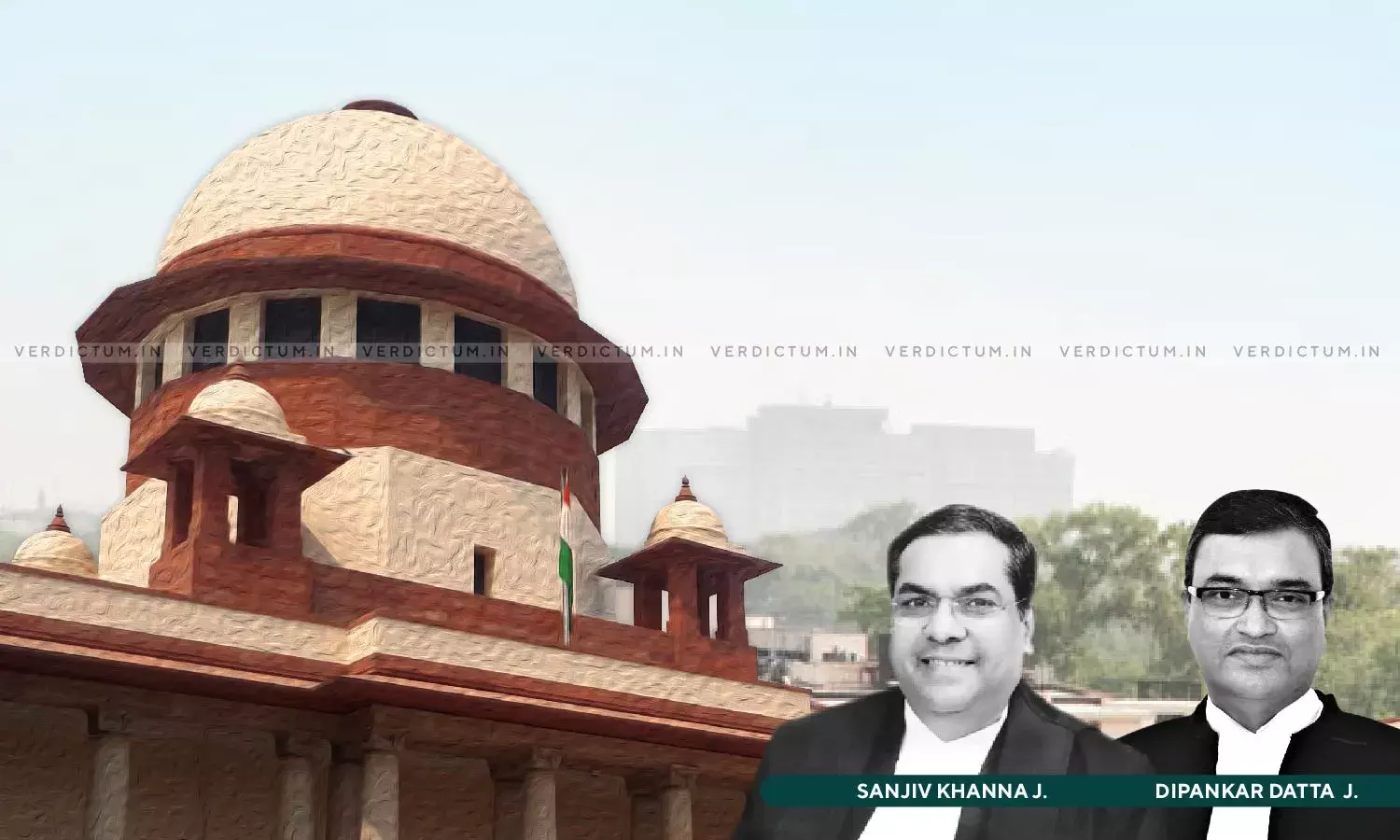When Common Questions Of Law & Fact Arise, One Civil Suit Can Be Filed Even When Separate Suits Can Be Brought Against Defendants: SC

The Supreme Court observed that whenever there are common questions of law and fact, arising out of the same act or transaction, a Plaintiff can file one civil suit even when separate suits can be brought against the Defendants.
The Bench of Justice Sanjiv Khanna and Justice Dipankar Datta observed “Order I Rule 3 of the Code states that the plaintiff may join a defendant in one suit, all persons against whom, the plaintiff claims the right to relief in respect of, or arising out of, the same act or transaction or series of transactions. The claim viz. the defendants can be joint, several or in the alternative. Thus, it is permissible to file one civil suit, even when, separate suits can be brought against such persons, when common questions of law and fact arise… Order I Rule 7 of the Code permits a plaintiff who is in doubt as to the person from whom they are entitled to obtain redress, to join two or more defendants in order that the question as to which of the defendants is liable, and to what extent, can be decided in one suit.”
Petitioner appeared in person while Advocate C.K. Subrahmanya appeared for the Respondent.
The Petitioner, which is a shipping company, submitted that two distinct transactions occurred, first, the sale of goods and second, the shipment of those goods. They said that their involvement was restricted to the second transaction, therefore, the suit, which was filed by Bhushan Steel, Plaintiff/Respondent herein, could not be brought against them in Delhi, as they were not a part of the first transaction and their businesses were located out of Mumbai.
The Court rejected the contention and held, “Section 20(c) of the Code accords dominus litis to the plaintiff to institute a suit within local limits of whose jurisdiction the cause of action, wholly or in part arises…Every suit is based upon the cause of action, and the situs of the cause of action, even in part, will confer territorial jurisdiction on the court. The expression ‘cause of action’ can be given either a restrictive or wide meaning. However, it is judicially read to mean - every fact that the plaintiff should prove to support their right to the judgment.”
In the present case, the supply order was placed in Delhi and the payment was released in Delhi, therefore, the cause of action arose in part in Delhi as per Section 20(c) of the Code. The Court observed that it was permissible for Plaintiff Bhushan Steel to enjoin all defendants in a single suit, including the Appellant herein.
The Court said, “Their claim of right to relief lies against all such defendants. Further, the relief claimed was in respect of or arising out of a series of transactions, the sale of goods and then their shipment, which transactions were connected and synchronized with the relief claimed. The cause of action could not have been adjudicated without impleading all the defendants as parties. Thus, in terms of Order I Rule 3, the relief claimed by Bhushan Steel lies against all the defendants, albeit to different extents and was ‘in respect of and arises out of a series of transactions’. Thus, Bhushan Steel was within its rights to enjoin all the defendants under a single suit as per Order I Rule 7 of the Code such that the extent of liability of each defendant could be decided in the same suit.”
The Court also reiterated that a question of territorial jurisdiction should ordinarily be decided at the outset rather than being deferred till all matters are resolved.
Hence, the Court dismissed the present Appeal.
Cause Title: Arcadia Shipping Ltd. v. Tata Steel Limited And Others (Neutral Citation: 2024 INSC 333)
Appearances:
Appellant: Advocates E.R. Kumar, D.P. Mohanty, Sonal Gupta, Manisha Arya and Abhishek Thakral.
Respondents: Advocates Joy Basu, Shashank Gautam, Arvind Thapliyal, Surya Kapoor, Saravna Vasanta, Siddhant Pandey, Rajesh Banati, Ashish Sareen, Anoop George, Kunal Chaterjee and Aagam Kaur.

